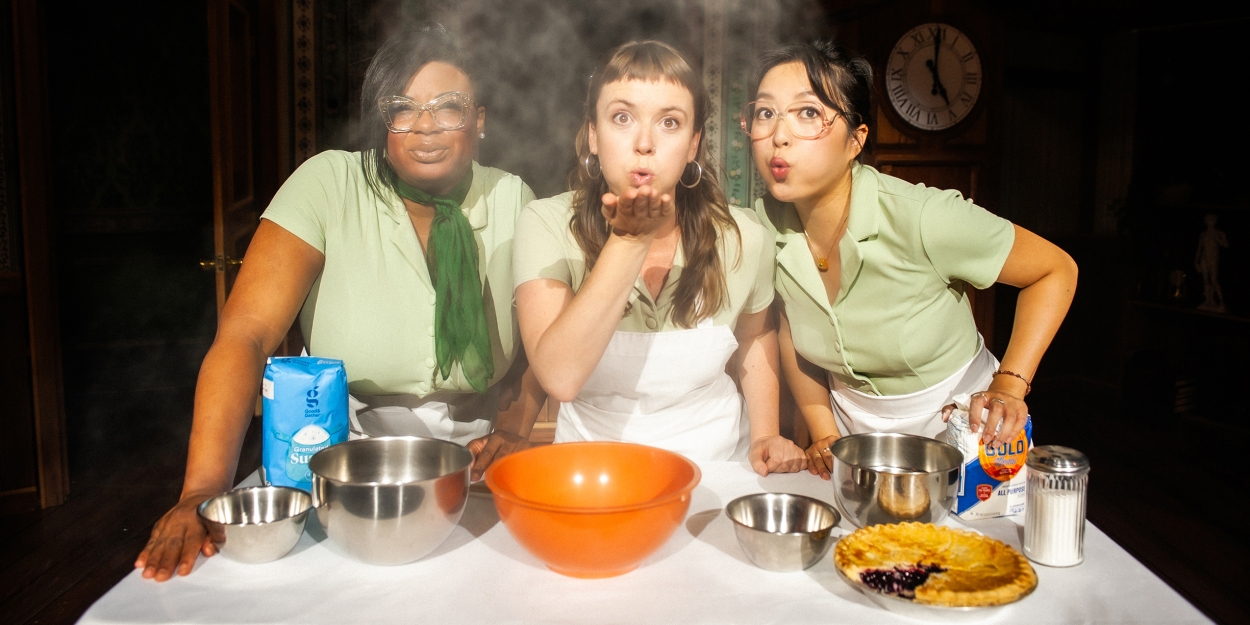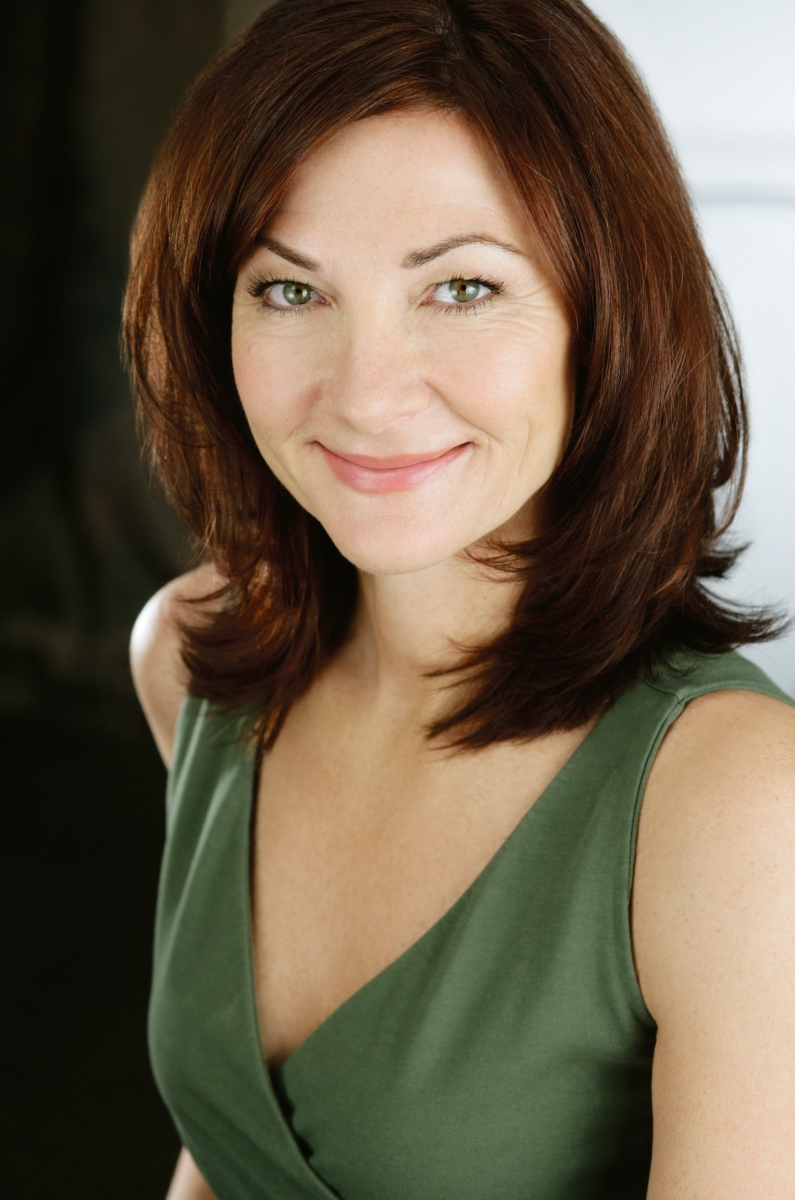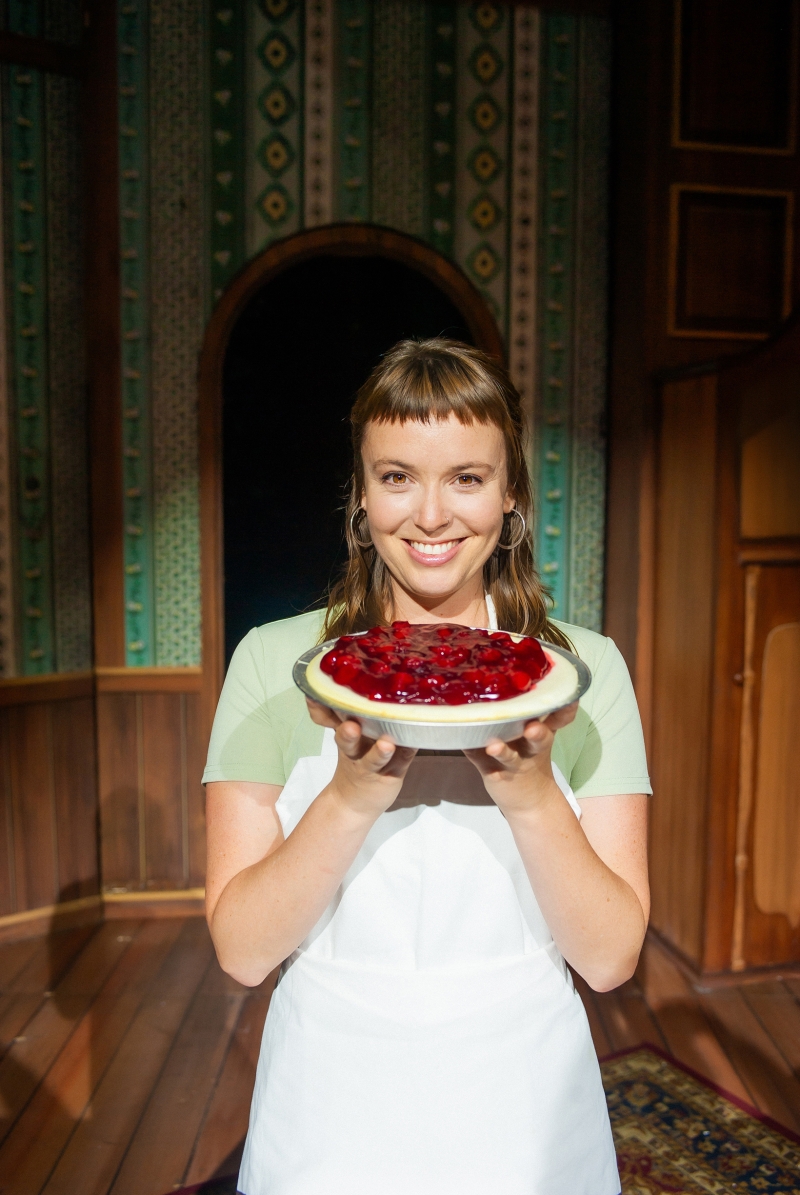Interview: Susi Damilano of WAITRESS at San Francisco Playhouse
What baking can do: Damilano directs the popular musical from composer Sara Bareilles running now through January 18th

The first thing you should know about Susi Damilano is that she’s a lot of fun to talk to – candid, funny and super smart, with a quick laugh and not an ounce of pretension. Given her storied career as an actor, I thought she might come across as more of a great lady of the “thee-ah-tuh” type. Nope, not at all. She is extremely approachable and down-to-earth. In fact, when I complimented her on her performance as Amanda Wingfield in Tennessee Williams’ The Glass Menagerie, she seemed genuinely surprised in a “Wait – you noticed?!” kind of way.
In addition to being an actor and producer, Damilano is also quite an accomplished director. Her latest project is helming the popular musical, Waitress, at San Francisco Playhouse, the company she co-founded with Bill English and where she currently serves as Producing Director. Featuring a spirited, marvelously tuneful score by Grammy-winning singer/songwriter Sara Bareilles and a clear-eyed and funny book by Jessie Nelson, the musical is about a waitress for a small-town diner whose entry in a baking contest offers her hope that she can escape her unhappy life. Damilano says she was drawn to the piece because it’s a story about surviving life’s struggles told from a female perspective, and the focus on baking and food as a way to show love resonated with her.
Born in Germany, Damilano’s mother moved her to the U.S. at the age of four where she learned to navigate a new culture and language. As a young adult, she worked as a CPA while studying acting with Bay Area legend Jean Shelton, teacher of greats such as Danny Glover and Peter Coyote. At San Francisco Playhouse, she has directed numerous shows and played a dizzying array of roles, everything from just-doing-whatever-she-can-to-get-by Nurse Ratched in One Flew Over the Cuckoo’s Nest to sophisticated, Upper East Side socialite Ouisa Kittredge in Six Degrees of Separation.
I spoke with Damilano by phone earlier this week between final rehearsals. We talked about why she was drawn to this particular piece, the complexity of its central relationships and the critical role that baking plays (hint: there is a lot of pie involved). We also chatted about how she and English have stayed true to their original vision for San Francisco Playhouse and why she had to be convinced to take on the role of Amanda Wingfield. The following conversation has been condensed and edited for clarity.

(photo by David Allen)
Since you are Producing Director of San Francisco Playhouse, I assume you have some choice as to which shows you take on. Why did you want to direct Waitress?
Well, it’s such a beautiful story from a female perspective about the struggles of life and how we each get through that. I also liked the challenge of not making the men just be jerks, these paper cut-outs. Jenna, the lead, has been married to someone for fifteen years who abuses her, and I thought “She’s not an idiot, so there’s gotta be something good about their relationship, too.”
I really love diving into the why. I was a CPA, an auditor, and my training there we called “Ask the second question.” When I started studying acting, it was one of the things that I loved, so I realized I’m just somebody that likes to analyze things. Asking the second question and third question – “But why? Why that? Why that? Why that?” It’s just so many layers, an onion you keep peeling, for the human experience. So there’s that angle, and also it being around kitchen and cooking. I grew up with food being how we show love, so it all just really resonated with me.
I love the complexity of the relationships in this show. I don’t think Jenna would have stayed with Earl this long if he’s always been a complete asshole.
Yeah, exactly, and we spent a lot of time talking about it. What we know about Jenna is that her father also abused her mother, and her mother dealt with that by trying to protect Jenna by taking her into the kitchen and bringing her into this magical world of baking pies. I think of it as conjuring up spirits. When Jenna’s mother died, she was probably around 14 or 15 and would have been stuck with her dad. Well, Earl was in high school with her and they were probably boyfriend and girlfriend, and he protected her. Maybe they even moved in together cause he was older than her and he could get an apartment. And he’s a decent musician so maybe he was trying to be a musician, and she can sing, and so that was their original plan and it just didn’t really pan out for him. I think his story is more that he was the hot guy in high school, probably played lead singer in the band that everybody had play at parties and thought he was going to have a big career, and that just never happened.
She got this job and now he’s more and more dependent on her, and his dependency on her makes him try to control her so she won’t go away, and he just doesn’t know how to deal with it. Now it’s just been too many years, and it’s time for her to realize she doesn’t have to be a victim, that her gratitude to him for helping her through her hard time in life doesn’t have to make her bound to him forever.

(photo by Jessica Palopoli)
I think for this show to work, you have to really nail the baking aspect. I mean, the very first words we hear are “sugar, butter, flour.” How do you plan to make baking a visceral part of the production?
Yeah, the baking is hugely important. We researched who makes pies in San Francisco and makes them really well, and we connected with a bakery called Three Babes [Bakeshop]. Our lead actor Ruby Day and her understudy Ash Malloy went there and got a piemaking lesson, and we’re gonna sell their pies in the lobby during the show. We’re not literally making or cooking a pie onstage, but we’re going to be surrounded by pie.
Ooh, I love the sound of that!
Omigod, and the pies the Three Babes make?! I wasn’t particularly a pie lover until I had their pies, and now I get it. They’re so good.
I’m also curious about your work as an actor. I have to say I really loved your Amanda Wingfield in Glass Menagerie at San Francisco Playhouse earlier this year.
Really? Thank you!
Was that a role you’d always wanted to play?
No, no, no! I never dreamed that anyone would cast me in it because I’m the furthest thing from a southern belle. I went to the Jean Shelton acting school and she is a lover of Tennessee Williams so we studied his work a lot and I fell in love with the poetry and power that he brings through his writing. But when Bill [English] told me he was thinking of doing the show and having me play Amanda, I said, “Really?! There’s so many other women in the Bay Area that I think you would want in that part.” And he said, “No, all the reasons you think you’re not right for it, I think will make you perfect for it.” I’m just really grateful that he pushed me to do it.
When you founded San Francisco Playhouse with Bill over 20 years ago, just what did you imagine you were getting yourselves into?
Well, we sort of courted and were married producing a play, and then we both were part of another theater company and had a couple of scripts we wanted to do that the theater company did not want to produce. Then a space opened up across the street and we were able to rent it month by month. We decided right from the get-go that we didn’t want to just put up folding chairs. If we’re gonna do it, we’re gonna do it.
Because of my CPA job, I used to go once a year to London to do audits on a company, and we would see theater there. We love London theater. It feels so much more part of the culture, so we wanted to model ourselves after the Royal Court, the Donmar and Steppenwolf [in Chicago]. We said that’s who we want to compete with. We always set our sights very high and continued to push for that. So we knew we were in for it! [laughs]
We love our space that we’re in right now, but my dream is to have a theater, hopefully more than one space within it, that has a beautiful café/restaurant. Like in London if you go to the Almeida or something, before and after you can go there and get a drink and something to munch on, and suddenly the actors come in and you’re like “Omigod, there’s the person who played that part!” and they come talk to you. That’s my dream. Because I come from a non-theatergoing family, I just wanted a theater that made them feel welcome. Creating a place where people can come and connect and have something great to talk about is really what the ultimate goal is.
San Francisco Playhouse’s programming is remarkably eclectic. You do some really challenging stuff, new works by local playwrights, classics and you’re not at all allergic to more “commercial” musicals like Waitress.
Yeah! That’s what we decided from the get-go. Because we love musicals, like I said I got trained on Tennessee Williams, and we love edgy. A long time ago when we were talking about our theater, probably over a couple glasses of wine, I wrote on a napkin: “We make the edgy accessible and we make the accessible edgy.” And that has been something that has driven us in our play selections for the last… what is it, 21 years? [pauses] Am I 21 years older?! I mean, I look it, but I don’t feel it. [laughs]
Post-COVID, regional theaters everywhere are struggling to a degree I have not seen in my lifetime. Some have gone out of business while others are offering drastically reduced seasons with fewer productions and shorter runs. Meanwhile, it seems like San Francisco Playhouse has managed to keep going full steam ahead. Has that been a major struggle?
Let’s face it, the pandemic was really brutal. Don’t forget we were [originally] supposed to have shut down for only three weeks. Do you remember?
I do. And I remember thinking “Oof, that’s such a long time!”
And then it was three months and it just kept getting extended. The pivoting and the weeping that came with that definitely was a struggle. I think what helped us is that Bill and I were together and that we both get bored easily. So we looked at each other and said, “If we wanted to shut down, this would be the time. But then what would we do?” This was what we wanted to be doing, so we didn’t stop producing, we just shifted what we produced. We went online, we learned how to do Zoom and that’s how we did our season announcement in March in those first three weeks we were shut down. It was a fun thing, I went to different countries, I wore a different outfit every time I came back on, and we got a ton of subscribers that then didn’t demand their money back, they just said keep it and keep going. Our subscribers and our board really stepped up for us, and then the government funding stepped in, which was the real lifesaver, and we were the first ones to be back onstage.
And we had originally wanted to be a film company, so we got to make movies, and we did it old-fashioned style with the three cameras and editing while it was happening, whispering to the editor, going, “Camera 1, Camera 2.” So that was really fun, and all I can think is that for many people we kept them engaged. So when we did come back onstage it was our 20th anniversary, and we used all the funds that we had reserved from donations and everything. We said, “We have to do a big season to really let people know that theater is back.” I feel like that is paying off. It’s taken a couple of years, but now people are back. And as long as they stay (theater can be fickle), we are doing well.
I was amazed that when San Francisco Playhouse came back, you did not come back small, with two-person casts and minimal production values.
Exactly. Because you know a two-person production also brings in fewer people, and our Number 1 goal was to fill the seats as much as we could. And we had to have six feet around everybody, too! So we couldn’t fill it all the way, but when we did finally have our 20th anniversary, which was the 2022-23 season, we decided we had to come back big. Our board approved us doing it and going into the red for it because we considered it an investment.
Getting back to Waitress, is there any particular song from the score that you can’t get out of your head right now?
“What’s Inside.” It’s the first song and it’s just so beautiful. And of course I’m always walking around going [sings] “Sugar. Flour. Butter.” [laughs]
You said you’re a fairly recent convert to the wonders of pie, but what is your own personal favorite?
My personal favorite is rhubarb. It reminds me of when I was, I guess, under 4 years old. I have a vivid memory of walking around the garden in Germany. Rhubarb looks like celery stalks but it’s purple, and I remember plucking it and sucking on it cause it was so sour. I loved it!
(Header photo L to R: Tanika Baptiste as Becky, Ruby Day as Jenna, and Sharon Shao as Dawn in the San Francisco Playhouse production of Waitress. Photo by Jessica Palopoli)
---
Waitress performs November 21, 2024 – January 18, 2025 at San Francisco Playhouse 450, Post Street. For tickets and more information, visit sfplayhouse.org or call the box office at 415-677-9596.
Comments
Videos

